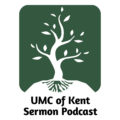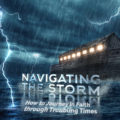From Despair to Hope
“But this I call to mind, and therefore I have hope. The steadfast love of the Lord never ceases; His mercies never come to an end; they are new every morning; great is Your faithfulness.” (Lamentations 3:21-23)
No matter how bleak circumstances may appear, we will find genuine hope when we lift our hearts to God. The apostle Paul testified to this experience in his second letter to the Corinthians, where he referred to a very trying time through which he had gone, and said,
“We were so utterly burdened beyond our strength that we despaired of life itself. Indeed, we felt that we had received the sentence of death. But that was to make us rely not on ourselves but on God, who raises the dead. He delivered us from such a deadly peril, and he will deliver us. On him we have set our hope that he will deliver us again.” (II Corinthians 1:8-10)
We will find genuine hope when we lift our hearts to God. Share on XPerhaps for us, as for Paul, the really tough experiences of life move us to rely all the more on God; and as we put our trust in God, we can experience afresh God’s delivering power and find a sure hope.
The Bible makes plain that even people of great faith will encounter stormy times in life. But we can move from despair to hope when we look to the Lord in faith. Jeremiah put it well as he said, “The Lord is my portion, says my soul; therefore I will hope in Him. It is good that one should wait quietly for the salvation of the Lord.” (Lamentations 3:24,26)
Sunday’s Scripture Readings:
Lamentations 3:1–12, 16–26
II Corinthians 1:8–10






I finished reading chapter 3 of Lamentations, and wasn’t really sure how to take 3:64-66. It has such a vindictive, damning tone and I am always taken aback by this when I find a passage like this. Is there more context that I am missing? Is it a time period thing?
This is a very good question. Lamentations 3:64–66 is an example of what Biblical scholars call “imprecatory prayer,” which is a prayer in which one calls for God to send disaster on one’s enemies, often in horrific fashion. There are other cases of this in the Psalms. Readers today are often distressed by the downright nastiness of these passages; but there are three important points to note about imprecatory prayer: